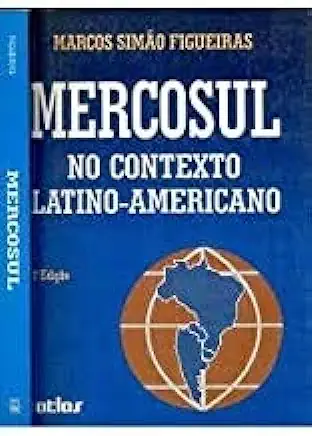
Mercosul in the Latin American Context - Marcos Simão Figueiras
Mercosul in the Latin American Context
Introduction
The Mercosul (Southern Common Market) is a regional trade bloc comprising Argentina, Brazil, Paraguay, and Uruguay. It was established in 1991 with the signing of the Treaty of Asunción, which aimed to create a common market and customs union among the member states. Over the years, Mercosul has expanded its scope to include cooperation in other areas such as political coordination, infrastructure development, and social integration.
Mercosul's Economic Impact
Mercosul has had a significant impact on the economies of its member states. The bloc has facilitated increased trade and investment among the member countries, leading to economic growth and job creation. For example, between 1991 and 2015, trade among Mercosul countries increased by more than 500%.
In addition to boosting trade, Mercosul has also helped to attract foreign investment to the region. The bloc's large and growing market, as well as its favorable investment climate, have made it an attractive destination for foreign investors. For example, in 2015, foreign direct investment (FDI) in Mercosul countries reached a record high of $56 billion.
Mercosul's Political and Social Impact
Mercosul has also had a positive impact on the political and social development of its member states. The bloc has helped to promote democracy and human rights in the region, and it has also played a role in reducing poverty and inequality.
For example, Mercosul has helped to strengthen democratic institutions in its member states. The bloc has also promoted the rule of law and respect for human rights. In addition, Mercosul has played a role in reducing poverty and inequality in the region. For example, between 1991 and 2015, the poverty rate in Mercosul countries fell by more than 50%.
Mercosul's Challenges
Despite its many successes, Mercosul also faces a number of challenges. One challenge is the persistent economic inequality among the member states. Brazil is the largest and most economically powerful country in Mercosul, and it accounts for a large share of the bloc's trade and investment. This has led to concerns that Brazil is dominating the bloc and that the other member states are not benefiting equally from Mercosul.
Another challenge is the bloc's slow progress in implementing its ambitious goals. For example, Mercosul has yet to achieve a full customs union, and there are still significant barriers to trade and investment among the member states.
Mercosul's Future
Despite the challenges it faces, Mercosul remains a vital regional bloc with the potential to play an even greater role in the Latin American context. The bloc's large and growing market, its favorable investment climate, and its commitment to democracy and human rights make it an attractive partner for countries in the region and beyond.
With continued cooperation and commitment from its member states, Mercosul can overcome its challenges and achieve its full potential. The bloc can become a more integrated and prosperous region, and it can play a leading role in promoting democracy, human rights, and sustainable development in Latin America.
Conclusion
Mercosul is a dynamic and evolving regional bloc with a significant impact on the Latin American context. The bloc has had a positive impact on the economies, politics, and societies of its member states, and it has the potential to play an even greater role in the future. With continued cooperation and commitment from its member states, Mercosul can overcome its challenges and achieve its full potential.